DayDreamWrites
We are Thrilled to get Amazing Food Recipes to You.
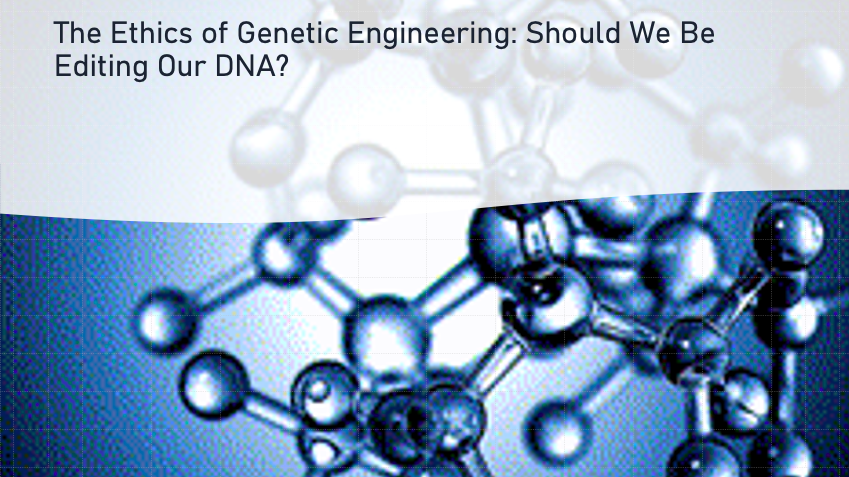

Genetic engineering Examples, the manipulation of an organism’s genetic material, has been a topic of debate and controversy since its inception. While it has the potential to address many important societal challenges, such as improving human health and increasing food security, genetic engineering also raises important ethical questions about the relationship between humans and the natural world, as well as concerns about the potential risks and unintended consequences of altering DNA.
In this blog, we will explore the ethical implications of genetic engineering and the question of whether we should be editing our DNA. We will examine the potential benefits and risks of genetic engineering, as well as the social and ethical implications, and consider the various perspectives and arguments surrounding this complex and controversial issue.

The practise of employing biotechnology to alter an organism’s DNA (deoxyribonucleic acid) is known as genetic engineering. This entails adding, removing, or changing particular genes or DNA sequences in order to change the traits or attributes of an organism. Genetically modified organisms (GMOs) with desired features, such as higher disease resistance or increased crop yields, can be produced through genetic engineering. It has multiple uses in biotechnology, health, and agriculture and has the potential to solve many significant societal problems. Yet, there are some worries about potential hazards to human health and the environment, making it a contentious area of science.
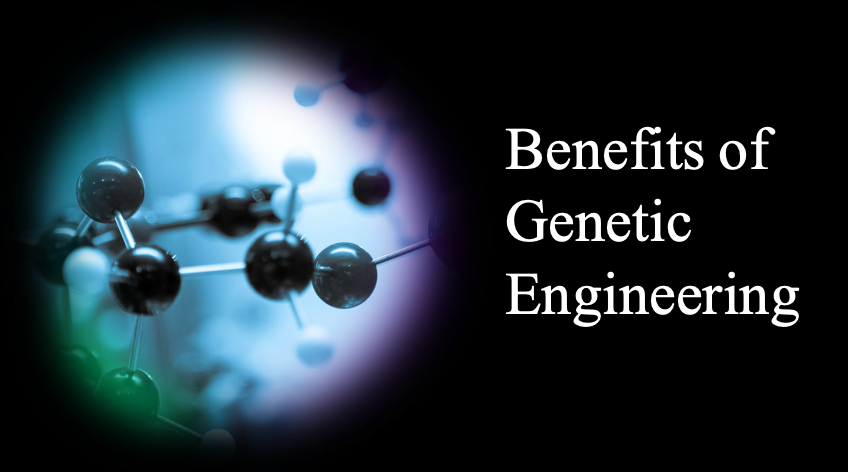

Many potential advantages of genetic engineering exist in many different disciplines, including:
Yet, it is significant to recognise that there are also possible hazards and ethical issues with genetic engineering that should be properly studied and addressed.
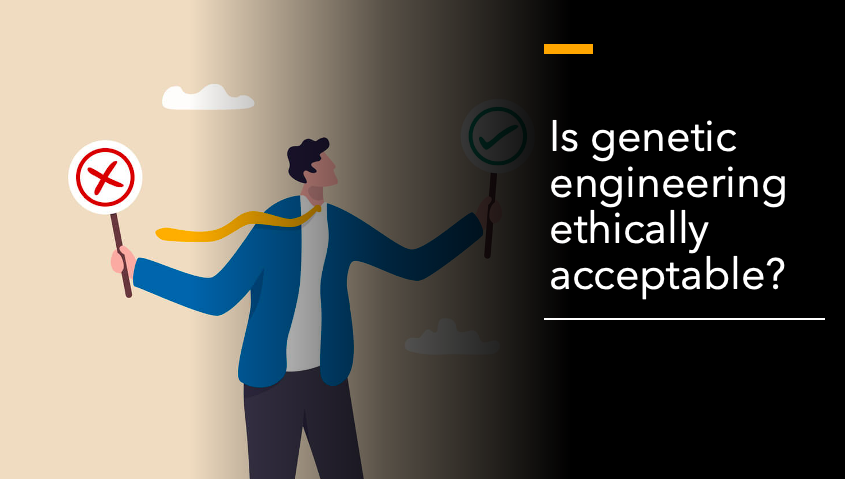

There are many different perspectives on the question of whether genetic engineering is ethically acceptable.
On the one hand, proponents of genetic engineering contend that it has a variety of potential advantages, including raising food security, lowering environmental damage, and enhancing human health. Additionally, they contend that genetic engineering may be utilised responsibly to advance society and is a logical outgrowth of human ingenuity.
However, opponents of genetic engineering contend that technology may have drawbacks, including unanticipated impacts on ecosystems and the potential for abuse by people or businesses. Additionally, they contend that genetic engineering presents significant moral issues regarding the worth of human life, the influence of humans on the environment, and other issues.
Genetic engineering’s acceptability will ultimately depend on a person’s values and beliefs as well as the particular situation in which it is being applied. It is crucial to carefully weigh the advantages and disadvantages of genetic engineering as well as to have open and honest talks regarding its moral ramifications. To reduce potential hazards and guarantee that genetic engineering is utilised responsibly and ethically, it is also crucial to make sure that the proper laws and oversight are in place.
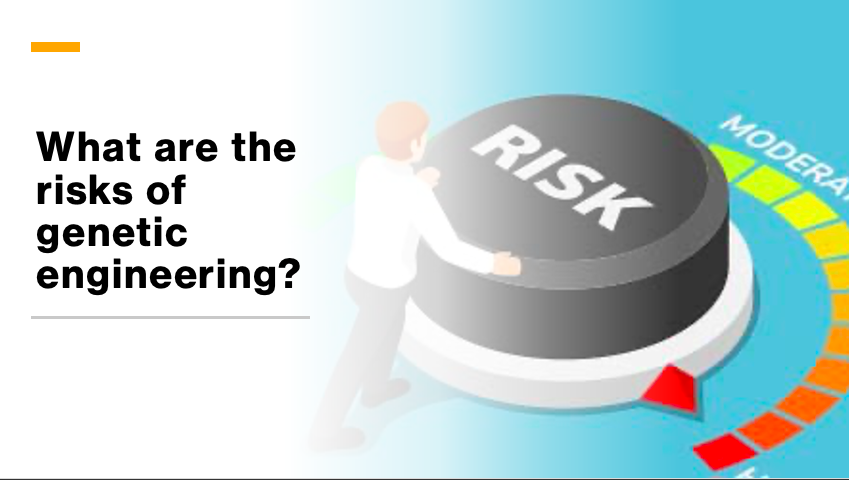

Risks associated with genetic engineering include:
It is crucial to carefully weigh these hazards and take action to reduce them by using genetic engineering responsibly, which includes thorough safety testing, moral oversight, and public involvement and education.
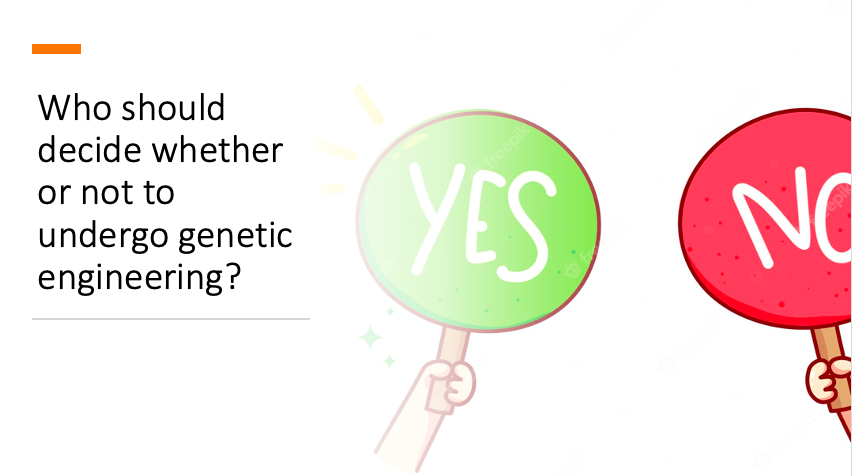

Genetic engineering is a personal and complicated choice that should ultimately be decided by the person or family in question. But it’s crucial that people have access to truthful, unbiased information about the advantages and drawbacks of genetic engineering, as well as any potential moral and social repercussions.
There may also be legal or regulatory frameworks that control the application of genetic engineering in specific circumstances, such as prohibitions on the use of gene editing in human embryos. These frameworks ought to be founded on a careful analysis of the ethical, social, and scientific ramifications of genetic engineering, with a focus on safeguarding human health and welfare.
The availability of information and assistance, such as counselling and genetic testing services, is crucial for enabling people to make educated decisions concerning genetic engineering. With the use of these resources, people may better comprehend the possible advantages and disadvantages of genetic engineering as well as how it might affect their families and communities.
In the end, the choice to undergo genetic engineering should be founded on thorough assessment of the person’s values, beliefs, and priorities, as well as the information that is currently accessible in the fields of science and medicine. It should also be decided after consulting with medical specialists, genetic counsellors, and other specialists as necessary.
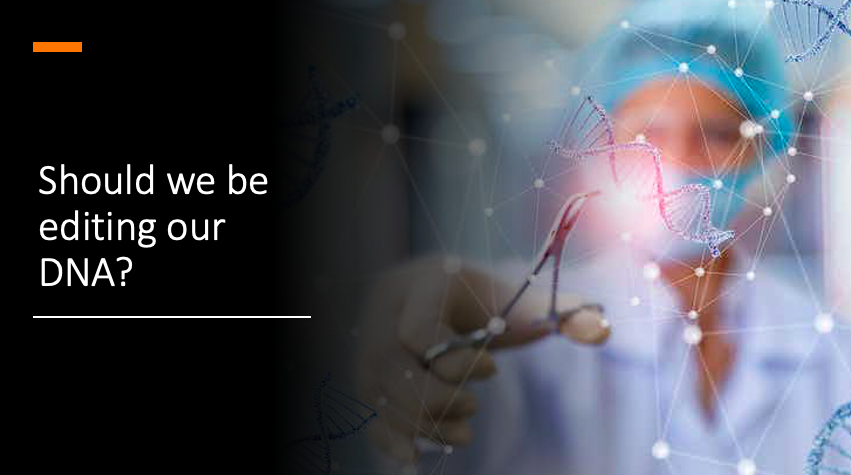

There is no simple answer to the difficult topic of whether or not we ought to change our Genes. On the one hand, genetic engineering offers the potential to address a number of significant societal issues, including enhancing food security, minimising environmental harm, and enhancing human health.
In order to make new discoveries and get a deeper understanding of intricate biological systems, it can also be used to research the function of certain genes and the part they play in various biological processes.
The possible hazards and ethical issues associated with genetic engineering, however, also need to be properly evaluated and addressed. There is a chance that genetic engineering will have unforeseen effects, such producing new toxins or allergies in food or medicine or damaging DNA mutations in people. Concerns exist over the possibility of genetic discrimination, the effect on human autonomy and dignity, and the consolidation of money and power in the hands of a few number of businesses.
In the end, the choice of whether or not to change our DNA should be based on a comprehensive analysis of the advantages and disadvantages as well as the information that is currently accessible in the fields of science and medicine. In order to reduce potential risks and guarantee that genetic engineering is used in a responsible and ethical manner, it is crucial to have open and transparent discussions about the ethical implications of genetic engineering.
It is also important to make sure that the proper regulations and oversight are in place. Also, it’s critical to give people access to tools, assistance, and impartial, factual information regarding genetic engineering so they may make informed decisions.
To sum up, genetic engineering is a potent and quickly developing subject that has the ability to address many significant social concerns, including enhancing human health, raising food security, and minimising environmental harm. But there are also possible dangers and moral issues with genetic engineering that need to be carefully studied and resolved.
In order to reduce potential risks and ensure that genetic engineering is used responsibly and ethically, it is crucial to have open and transparent discussions about the potential risks and benefits of the technology. It is also important to make sure that the right regulations and oversight are in place.
The choice of whether or not to change our DNA should ultimately be based on a careful evaluation of the advantages and disadvantages as well as the available scientific and medical data, and should be made in cooperation with medical specialists, genetic counsellors, and other experts as necessary.